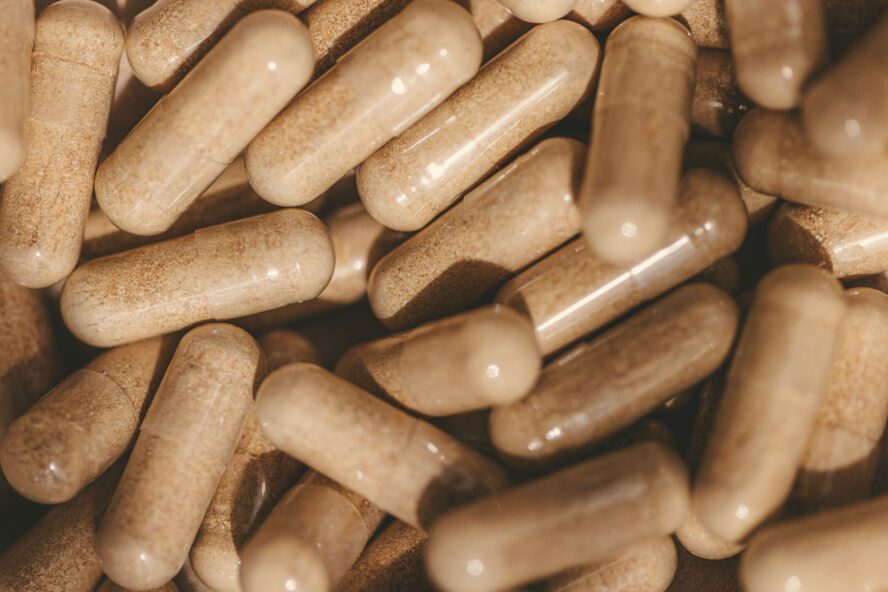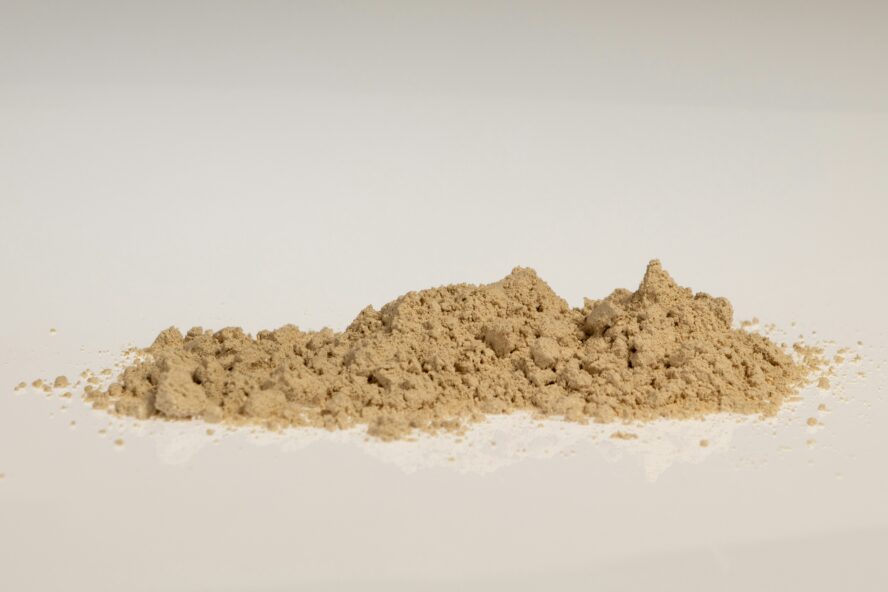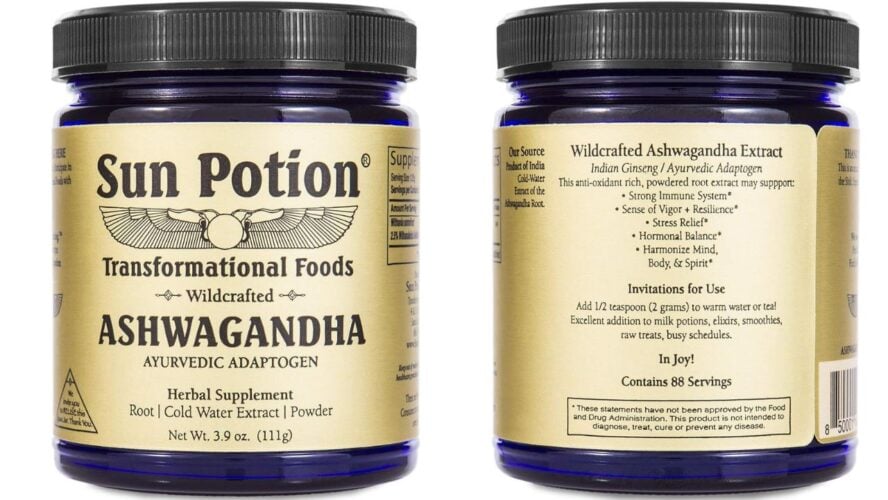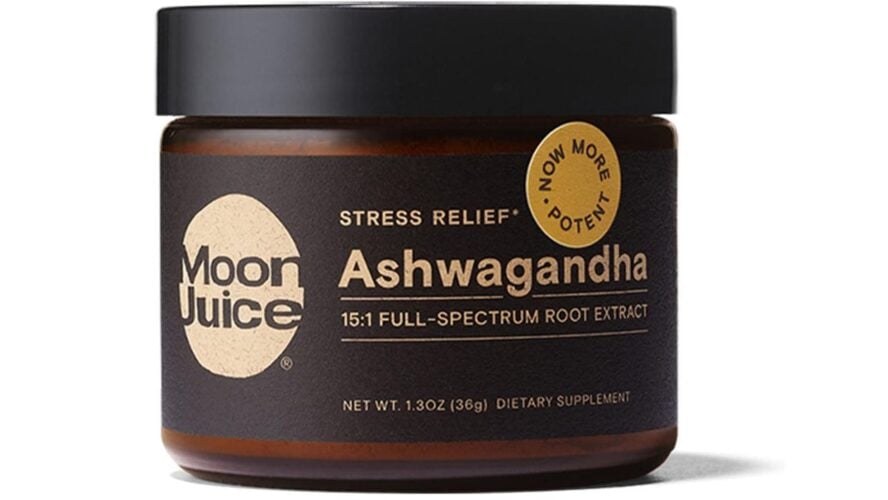
Ashwagandha is a member of adaptogens, which are an exclusive class of plants. And thankfully, there are several benefits of ashwagandha that you need to know. These plants get their name from their ability to help our bodies adapt to stress. While this group includes over a dozen different plants, ashwagandha is a particularly special member.
“It’s really considered the king of herbs in Ayurveda, the oldest healthcare system in the world – it goes back 5000 years,” explains Chris Kilham, Medicine Hunter.
While the longest adaptogen around, it is also the perfect cure for a very 21st-century problem. “You’re very tired in the early evening, but when you lie down to go to sleep, your eyes pop open and you’re just wired again,” Dr. Tieraona Low Dog says to people who benefit from this nearly magical root.
This guide will not only explore the proven benefits of ashwagandha, but it will also point you towards trusted ways in which you can add ashwagandha to your daily routine.
With that in mind, here are just a few of the proven benefits of ashwagandha.
Sign up for the newsletter for more natural wellness tips.
1. Ashwagandha Helps You Sleep

The Latin name for ashwagandha is Withania somnifera, which should give you a bit of a hint as to how it works on your body. One of the main benefits of ashwagandha is its somniferous quality: it helps you get good, restful, restorative sleep.
“Ashwagandha is nice, I think, for Americans, because it’s the only really truly sedating adaptogenic herb we have,” explains Dr. Low Dog.
“A lot of people I’ve taken care of as a physician are the ‘wired and tired,’” she says. “You start taking this and you find that you’re calmer throughout the day, and then at night when it’s time to go to bed, you don’t have that wired feeling.”
Ashwagandha accomplishes this by reducing levels of cortisol, a substance produced by the body when under stress. Cortisol is a natural steroid produced by the body and, according to Dr. Low Dog, “it’s what makes people feel so jacked up at night.”
Several studies, including one published just this year, have confirmed these beneficial effects of ashwagandha on sleep cycles, helping you fall asleep more easily without the drowsiness that prescription sleep aids can give you1.
2. Ashwagandha Tempers Anxiety

While all adaptogens help in some way with stress, Dr. Low Dog notes that ashwagandha is particularly good for people who feel “worn out and frazzled.”
A 2012 double-blind study in The Indian Journal of Psychological Medicine found that ashwagandha root extract could help reduce anxiety in adults with chronic stress.
According to Dr. Low Dog, ashwagandha can also be a great supplement for teenagers or adults who have difficulty focusing due to feeling scattered or anxious.
3. Ashwagandha Gives You More Energy

This might seem contradictory, given the other benefits of ashwagandha, but believe it or not, ashwagandha can actually improve your energy.
“If you want more real energy: endurance, stamina… ashwagandha is very good for you,” explains Kilham. By lowering the energy you devote to feeling stressed, you can channel your energy into activities.
A 2012 study in the Journal of Ayurveda and Integrative Medicine backed up this benefit, finding that supplementing with ashwagandha helped professional cyclists increase their endurance and stamina2.
4. It Can Ward Off Upper Respiratory Infections

Ashwagandha is particularly good for the upper respiratory tract. In fact, the aforementioned study on cyclists showed that it was especially helpful for cardiorespiratory endurance.
“It’s good for the immune system,” explains Dr. Low Dog. “So it helps in people that are stressed that are also getting more upper respiratory infections and things like this.”
5. Ashwagandha Can Boost Your Sex Life

Women tend to use ashwagandha due to its ability to ease multitasking, frazzled energy. Dr. Low Dog notes that while there is nothing uniquely feminine about ashwagandha, that sort of frazzled energy is something that tends to affect women more than men.
A 2022 study found that ashwagandha assists in increasing serum testosterone levels and offers significant sexual well-being3.
Things to Know Before Adding Ashwagandha to Your Diet

Ashwagandha is safe for most people to add to their diets, but as with any new addition to your health regimen, it’s always a good idea to consult a doctor or herbalist before beginning any new cycle of treatment. Specifically, people with diabetes, autoimmune disorders, blood pressure issues, and people who are pregnant or breastfeeding should be aware of the potential issues of ashwagandha.
One animal study has linked ashwagandha to interactions with thyroid medication, and a case report showed that it could contribute to hyperthyroidism. While Dr. Low Dog notes that the results are far from conclusive, it’s definitely something to be aware of.
“I’ve used it for 30 years in practice and have never seen a problem with the thyroid, but it may – there may be something to it,” she says.
If your doctor or healthcare professional suggests ashwagandha, there are choices when adding it to you’re diet. Buy ashwagandha as a capsule, powder, extract, or whole root. It doesn’t really matter which you use, though some studies have shown that mixing it with alcohol, as certain extracts do, may temper its effects. Generally, professionals recommend a 500 mg dose two to three times per day.
Ashwagandha has a rather earthy flavor, so drinking it as a tea isn’t always that palatable, but you can make a sweet drink with it by adding it to warm milk, plant-based or otherwise. Dr. Low Dog combines powdered ashwagandha with almond milk, cardamom, and a bit of honey for a bedtime treat.
No matter who you are, Dr. Low Dog does have one recommendation for ashwagandha supplementation: don’t start on Monday morning.
“Bigger doses may make you feel kind of tired,” she says. “Start it on a weekend, so you know how you’re going to feel when you take it.”
Most experts recommend using adaptogens every day for a period of time and then taking regular breaks, such as one day off per week, one week off every three months, and a month or two off a year.
4 Ashwagandha Products We Love

“Ashwagandha root alone is what has been used traditionally over thousands of years,” Kilham says. While some companies are now selling products combining both root and leaf, “We don’t really have a history of safety with that, and you kind of have to ask the questions: why didn’t they do it for over 4,000 years?”
Stick to ashwagandha root extracts whenever possible, and be sure that the company is transparent with regard to sourcing. Something else to consider, some people who have tried ashwagandha in pill and powder form report that they feel the powder form can be more effective. Results obviously vary from person to person.
1. Sun Potion Organic Ashwagandha

Sun Potion is a certified organic supplement company by real-life couple Scott Linde and Nitsa Citrine. The wellness community boasts this cold-water extract that is from sustainable ingredients from organic farms in Northern India.
88 Servings of Sun Potion Ashwagandha for $45 via Amazon
2. Moon Juice

This LA-based resource for “plant-sourced alchemy” includes certified organic ashwagandha in several of its “Moon Dust” products, which include blends of several different adaptogens and other plants specially created to cater to different needs. Moon Juice includes ashwagandha in its Beauty, Brain, Spirit, Power, and Dream Dusts, and also sells a pure ashwagandha powder.
“As a company, we are constantly working with science and nature to be connected to new power plants,” notes Moon Juice team member Janie Wood.
72 Servings of Moon Juice Ashwagandha Root Powder Extract via Amazon for $38
3. HUM Nutrition

HUM Nutrition produces GMO-free supplement blends from sustainable ingredients. The brand capitalizes on ashwagandha’s ability to provide energy and combines it with other adaptogens, antioxidants, and more for tailored blends.
“Our process for formulations is very user-centric,” explains HUM co-founder Walter Faulstroh. “First, we identify the customer need. Are we talking about stress or stress-related fatigue? Perhaps skin conditions as a result of high cortisol levels? The immune system? Once we have identified that need, we look at clinical research to understand how nutrients can help solve the customer’s concerns and identify the right amount of each adaptogen.”
Amazon.com: 60 Capsules of HUM Uber Energy via Amazon for $26
Read More on Organic Authority

While there are several benefits of Ashwagandha, it’s just one of many adaptogens that can help your body adapt to stress. Discover our other favorites with our comprehensive guide to adaptogens.
Do the Benefits of Matcha Include Better Sleep? Studies Say Yes
Benefits of Pumpkin Seeds: Improve Your Health and Sleep
5 Health Benefits of Oil of Oregano
The Soothing Benefits of an Epsom Salt Bath and Why You Need One Now
- https://pmc.ncbi.nlm.nih.gov/articles/PMC5313221/
- https://pubmed.ncbi.nlm.nih.gov/38988644/
- https://pmc.ncbi.nlm.nih.gov/articles/PMC9297375/

